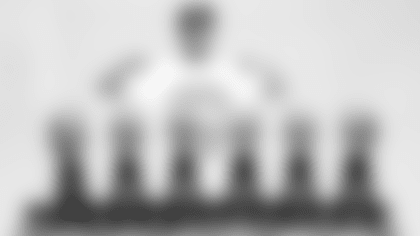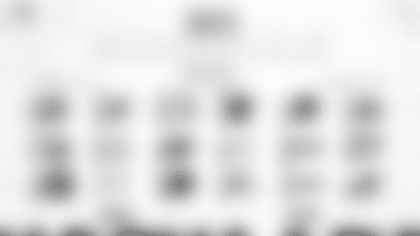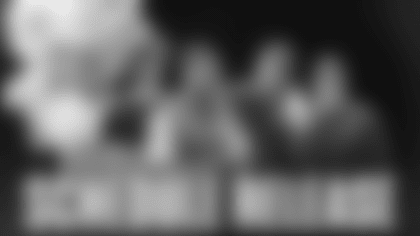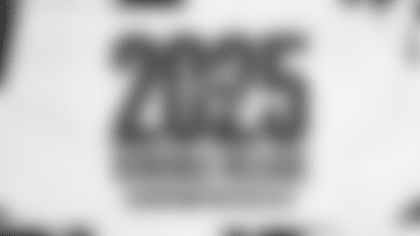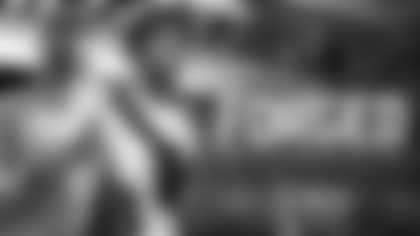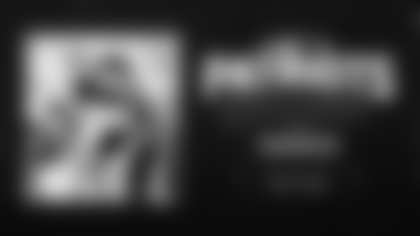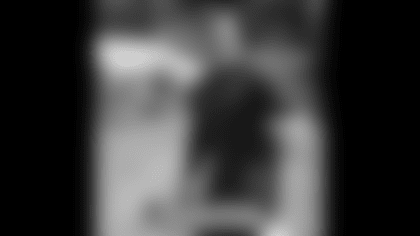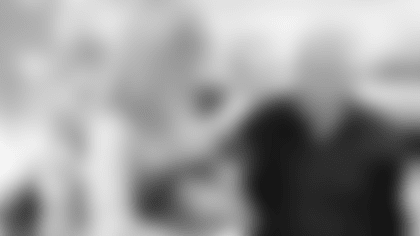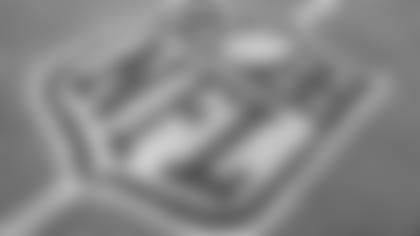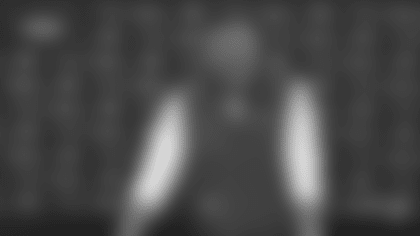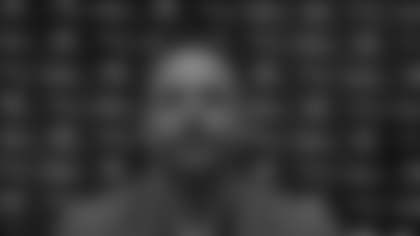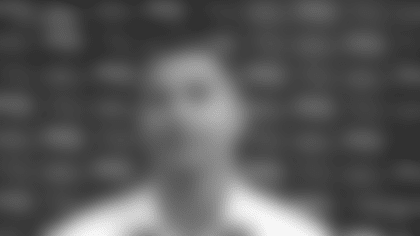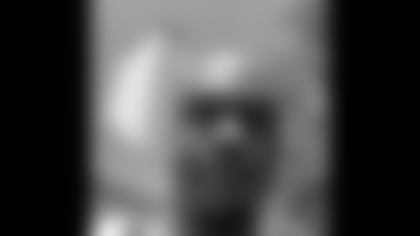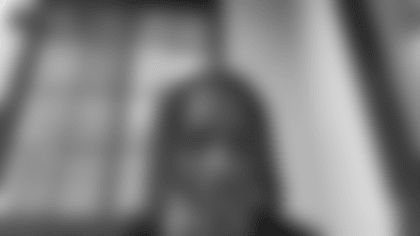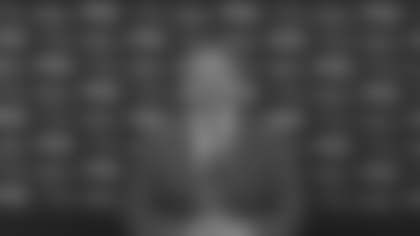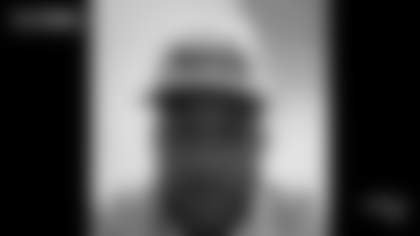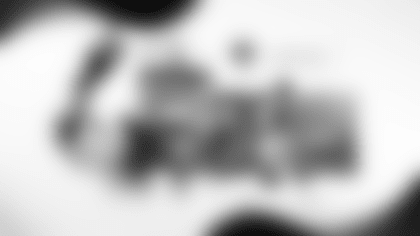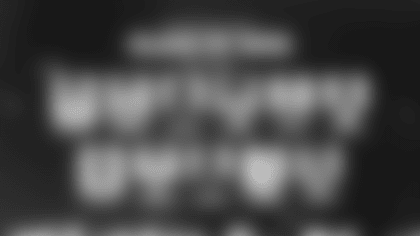DIRECTOR OF PLAYER PERSONNEL NICK CASERIO
PRESS CONFERENCE
April 25, 2019
NC: I appreciate everybody sticking around. I'm sure everybody's anxious to get home. You know, just as Bill [Belichick] mentioned this last week, [this is the] culmination of a lot of work by a lot of different people throughout the course of the year, starting with Monti [Ossenfort] and his staff. There's obviously a lot of time and a lot of effort that goes into this exercise. We still have a lot of work to do in front of us, a lot of picks tomorrow. So we ended up sitting where we were, at 32, and making the pick with [N'Keal] Harry, the receiver from Arizona State. [He's been] a productive player over a three-year period. He played for a couple of different coaches. He played for coach [Todd] Graham for a couple of years and then coach [Herm] Edwards came in, but he's been a pretty productive player in their systems. He's a big, strong receiver with good hands, good with the ball after the catch and he had a chance to play against some decent people in the PAC 12 [Conference], so we'll get him out here and try to get him the program and get him moving. The expectation will be no different than it is for any other player that comes in and get started, build a foundation and then go from there. So, I think that's really the focus more than anything else. Anything beyond that it is a little much, but right now our position is that we have five picks tomorrow, but we'll see how that goes. [There are] certainly some opportunities that could be there, potentially to move around a little bit. We do have a little flexibility relative to the picks, so we'll evaluate the board, we'll evaluate the situation and the opportunities that are there and try to make good decisions here over the next couple of days. There's plenty of work to do, but we're off to a decent start and we'll see how it goes.
Q: What did you learn about N'Keal Harry when he came to visit you during one of the pre-draft visits here?
NC: Yean, I mean that's part of the process, so I mean that's one of the checkpoints. We had some other interactions with him, but he came in and presented himself as a pretty mature kid, seems like a pretty smart kid. So, I'd say all these players, regardless of where the come from or how much experience they have, it's an enormous transition that they're about to undertake on a lot of levels. The playing level is a part of it – but honestly, some of the other things, non-football related, just as it relates to routine, consistency, day after day after day. They're behind, obviously, relative to the rest of our players who are two weeks into the offseason program and have been training prior to that, so most of these players, wherever they come from, have essentially been on their own for, let's call it, the last two to three months probably without a real program that they've been following. So, that'll be the biggest transition or adjustment initially, just getting in and establishing a routine on a day-to-day basis. It's a slow process, it takes time. Nothing is going to happen overnight, so the goal, whether it's Harry or the players we pick over the next couple of days, is to really get them ready for training camp because they need to get caught up to have a chance to at least be competitive with the rest of the group, because really that's what it is – they're behind everybody. I mean, that's the reality of it. They have an opportunity to catch up and we'll see if they can do that when they get here.
Q: Belichick was really candid about the differences in the college passing game and the NFL. How sophisticated was the Arizona State offense that Harry played under and how quickly does he seems to pick up concepts?
NC: I would say whatever system they played in at this point is kind of irrelevant because nothing is necessarily going to transfer over, regardless of how extensive that the system they played in was, whatever the terminology or the philosophy or the schematics are. The big thing will be just to focus on our system and give the players something that they can handle, and then see as you move along through the process how much they can handle. The more they handle, the more you can give them. The biggest adjustment that Bill alluded to is the volume, and we've talked about this previously, especially at that position, is the volume of coverages, the techniques that corners that you're going to play against. Look, you're probably playing against one or two decent players on the perimeter every week. It's a Trumaine Johnson or Minkah Fitzpatrick or Xavier Howard, so there's different combinations. It's the same thing for a tackle trying to block [Cameron] Wake or Jerry Hughes – which you might see one of those guys during your season, now you're going to see them every week.
Q: He's a bigger guy. Can he go inside at all?
NC: He moved around the formation a little bit, so we'll see how it goes. We'll start him at one spot and then see wherever that goes from there.
Q: Can you gauge how they pick things up during the visit?
NC: I would say with all of the players, on both sides of the ball, it's pretty extensive. We try to simulate a little bit of what they're going to go through when they get here, kind of like a rookie minicamp situation. It's something that we do when we go on the road and visit with players. We try to go through a little bit of installation. We try to teach them our system. We tell them, 'Look, this is probably one-tenth of what you're actually going to get when you get here, so you at least have a baseline foundation for a starting point.' We try to do the same thing so it's consistent with every player really at all positions. We try to simulate what that process would be – meeting, installation, walk-through, learn the material, come back and see what they retain – so that's the big thing and for us just as a team. Once we get into the season, we're such a game-plan specific team and the game plan changes each week, so what we did in the Super Bowl, how we played defensively, is different than how we played at different points. So, having the players that have that mental flexibility and mental adaptability, we've found, has been beneficial. Finding players who have those qualities regardless of the position that they play is important.
Q: You haven't taken a wide receiver in the first round since Belichick came in in 2000, so what was is about Harry that made you buck that trend?
NC: We're not concerned about what's happened in the past. We look at the players across this year's board and we stack the players obviously horizontally and vertically and then we work across, so it's the same thing we did with Sony [Michel] last year. We drafted Sony at the bottom of the first round. So, he was a good player, a highly-graded player, so relative to the options we were looking at, that was the choice that we made. Whatever happens in the past really has no bearing because it has no relevance to this year.
Q: Drew Lock was available at 32. Was he a player you anticipated seeing when it was the Patriots' selection and was he a consideration?
NC: There's a lot of players – you go through different scenarios and try to take the information that you have and try to pinpoint where a player is going to end up. I'd say there are a lot of players that were in that category so there certainly was a number of good football players that are left up there, so we'll kind of recalibrate here where we are tonight and tomorrow morning and kind of get ready to go for tomorrow.
Q: There were a lot of talented receivers on the board at 32. What separated N'Keal Harry from that group? What made him more attractive to you then some of these other receivers?
NC: He's been a productive player. He has some physical attributes that are important to that position. There's some other good players that are up there, as well, so we just thought this was the player that made the most sense for us at the time.
Q: Was it close between Harry and some of the other guys you had there? Like him versus Debo Samuel, A.J. Brown or Parris Campbell?
NC: Yeah look, we can only pick one player.
Q: But what made you say that this is the guy?
NC: We set the board up and then we pick the player that we think makes the most sense, and that's what we did.
Q: There was some trade action at both picks right before you. How did that affect you guys in the room in terms of making the pick that you did?
NC: Not necessarily. There were obviously some phone calls a little bit there at the end, but it really didn't have any relevance or bearing. It wasn't necessarily going to affect what we were going to do, there were some other things that we were working on separately, so in the end, we decided the best thing for us was to pick and that's what we did.
Q: Harry wasn't considered one of the fastest guys at that position but does he have a little bit more value than others because of his ability to make catches in tight spots?
NC: Every player has his skill set and attributes that are specific to them. Some players have certain qualities. I would say one of the things that he does well is he plays the ball in the air. I would say the coverage in this league is tight, regardless of the type of player or receiver that you are. The coverage is tight, so you're going to have to make some plays in some tight quarters – receivers have to do it, tight ends have to do it. James White, I know he plays running back, but he's involved in the passing game. The windows are smaller, the catches are going to be more contested, so if a player has the ability to do that, that's maybe one of his strengths. That's one of Rob [Gronkowski]'s strengths – he can make contested catches. Everybody has something that they do well or that their skill set is different from somebody else. They have to maximize whatever attributes they have and that's what you hope that they do.
Q: How much of this selection was about targeting N'Keal Harry specifically versus seeing a need for wide receiver and choosing the one you felt best about at a position of need?
NC: Yeah, I mean, our whole philosophy, Jeff [Howe], is just to try to pick good football players regardless of where they come from, how they get here, what position that they play. That's what we care about. It doesn't really matter the position that they play. You just try to pick good players, however they get on your team, and just put them in a position where they have a chance to be competitive with the other players that are here. Ultimately, that's what we're most concerned about.
Q: Did the first round as a whole unfold as you would expect or was there any part of it that was surprising?
NC: Yeah, I mean, I would say at this point, nothing's really a surprise. I think each team has their own philosophy of what they're trying to do or what they want to do, and they have to put the resources and the time and picks into those players. There's nothing that's really surprising. You just try to go through a process and try to have some anticipation of where you think players are going to get picked – or, OK, if the player doesn't get picked here, what's the likelihood of your next selection maybe that player not being there or being there? Those are all some of the things that go into the bigger picture. Some of it is supply and demand. Some of it could be some other factors. You just take all of that information and just try to make the best assessment that you can presently and then you make the best decision for our club.
Q: What does Harry have to do to have success in New England here with this program?
NC: Well, show up, work hard, take coaching and just try to improve each day. Honestly, that's a formula for every player. If you do that – I mean, it's not that hard. It seems pretty simple but it's not that hard. But, if you do those things – if you show up, if you work hard, develop a routine, have good habits, get into a day-to-day, you're consistent day-to-day and you take coaching and you improve – you're probably going to become a decent player. If you don't do those things, it's probably not going to go too well for you.
Q: Was it important for you guys to add a player with the ability to make tough, contested catches, similar to what Rob Gronkowski was able to do?
NC: I would say, look, a receiver has got two jobs – get open and catch the ball. That's plain and simple. However they do it, then that's what they need to do. In the end, not to keep it very simple, but two jobs – get open and catch the ball. So, however they do that, they have to find a way to do that.
Q: Is he the kind of guy who's open even if he's not because of that ability to make contested catches?
NC: Look, in the end, you have to be able to play the ball and make a play on the ball. So, how he does it might be different than how somebody else does it, but in the end, the passing game is contingent on a number of different things and the receiver's got a couple of jobs. And if he can do that, then he can play in our offense. And if he can't, then he probably won't.
Q: How excited are you for what you guys can accomplish tomorrow with the number of picks you have?
NC: Sure, yeah, there's definitely some good players that are left here. So, I think we'll work through it. There's some players that I think we like, that I think we're going to like and we have some flexibility. Maybe if there's a player that we think we need to target a little bit earlier, we could potentially go up and get him. If not, we can kind of sit back and pick. We'll look at it, but I would say there's certainly groups of players and some positions maybe have a little more depth than others, so we'll just have to look at it relative to where we think we are as a team. It should be interesting.
Q: Can you compare N'Keal's skill set to any past or current NFL player?
NC: Yeah, I would say that's not really something that we get into. Honestly, it's not fair to the player. It's not fair to the veteran players, other players that are playing in the league. Honestly, each player has his own dynamics and his own attributes and it's important for them to focus on that. Not necessarily like how they compare to somebody else. That's not really something that we spend too much time on because it's kind of irrelevant.
Q: Have you ever looked into what the scenario is if the clock were to run out on you with the 32nd pick?
NC: It's a great question. We talked about that before the draft, like what were to happen. However many years ago that was, the clock ran out and then it went to the next team. You don't have the ability to do that anymore, so if it runs out, eventually you have to pick. You've got to figure out something to do. If the clock runs out, nobody's going to trade so you have to make the pick. It's a great question. If you do it, you could wait until tomorrow morning. Like, could we wait until seven o'clock tomorrow to make the pick? The league probably wouldn't like that, but at some point we'd probably have to do something.
Q: Could Arizona jump you?
NC: No, that's what I mean. They can't – that whole rule, when that happened – I think it was Baltimore and Minnesota – whatever it was, and they jumped in front of them, like, that's been eliminated. Eventually you've got to make a decision.
Q: Doesn't a part of you just want to watch the world burn though?
NC: No [laughs]. Nobody would be too happy about that.
Q: How much bearing did your familiarity with Harry's coaches have on your desire to select him? Had he been on your radar as an underclassman for a while now?
NC: That's a good question, Bob [Socci]. I think once players get into the program, certainly players that play early in their career as freshmen, they sort of get themselves on the radar – like [Nick] Bosa, players like that, that actually come in and play and have an impact. At some point, they're probably going to factor into the equation. It might be sooner rather than later. You don't know that, but you're certainly cognizant of the production that they have, especially as a younger player. I would say that the relationships that you have with coaches, it's part of the equation. It's not necessarily an overriding factor because you're trying to gather information from a multitude of areas and sources. But, when you speak to the coach who's around him on a daily basis, he has some commentary about their growth, their development, maybe where they started to where they are now, so they see them a lot more closely than we do because they're around them every day. I would say that's one of the things that our scouts do is try to talk to people, whether or not it's the head coach, but talk with coaches, talk with other personnel, strength coaches, that are around these players on a repetitive basis so you can kind of establish some idea of what you're dealing with. It's not an overriding factor, but it certainly factors into the equation. We talked about it last year, like when we took Sony [Michel] and Isaiah [Wynn], just the program at Georgia and how Coach [Kirby] Smart runs it and how much respect we have for Coach Smart. Those coaches have been around a lot of good players, so it's a part of the equation. It's not the overriding factor, but it's certainly a part of the evaluation.
Q: When did Harry come onto your personal radar?
NC: Yeah, well, part of our scouting process which, actually, our scouts are here now. They're working on the 2020 draft as part of their spring scouting, so when we go through our spring scouting then those players are – whether or not, even as underclassmen, like whether or not they're going to actually come out or not, when you're watching a school of 'X' amount of players, you're focusing on more than one player. I'd say he's no different than kind of any other player that kind of goes through our spring scouting process and really it's kind of a full year, 365 cycle, so from call it May to May or wherever we are right now. During that period of time, you're evaluating. It's not like you wait until the player declares for the draft and in the case of underclassmen like, 'Oh, we better do some work on that player.' We try to stay ahead of it as best we can. He, I would say, was in the process like however many hundreds of other players that are here in the draft.
Q: So you personally would've seen him last spring?
NC: Probably part of it, or maybe even in some crossover film before that. Look, you know who the players are and conferences and teams. You're working on them. Eventually, they're probably going to be involved in this process, so we can either wait until it actually becomes reality or we can just try to stay [ahead] of it, which our staff does a great job of doing that. That's part of our responsibility and part of our job.
Q: What is it that allows Harry to be productive after the catch?
NC: Yeah, he's a strong guy. He's hard to tackle. He actually has a little bit of ability to just make people miss. It's one of the things that he's been productive doing. You get the ball in his hands and he's been able to make some yards. We'll see if that translates over to us here when we get him.


